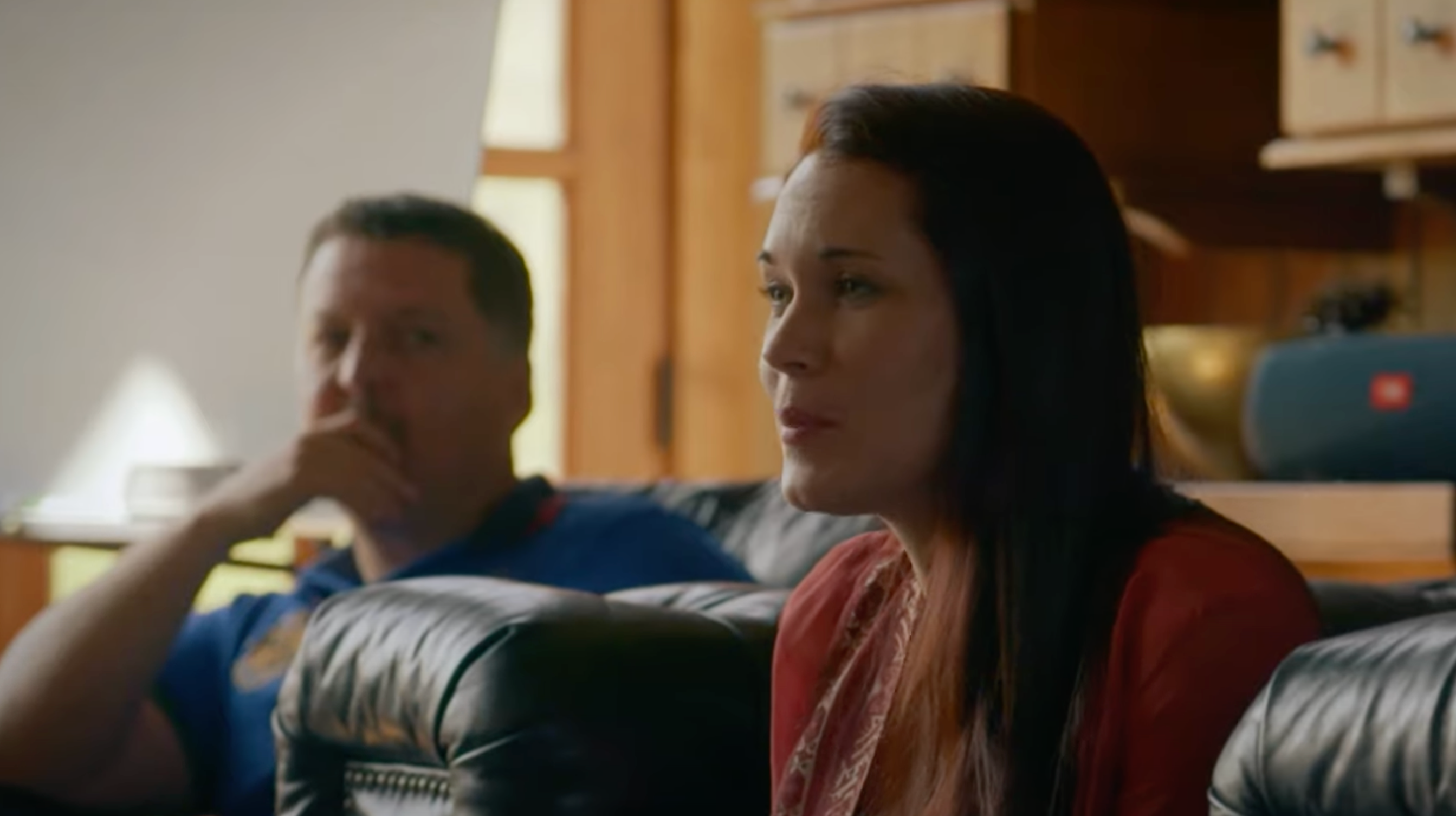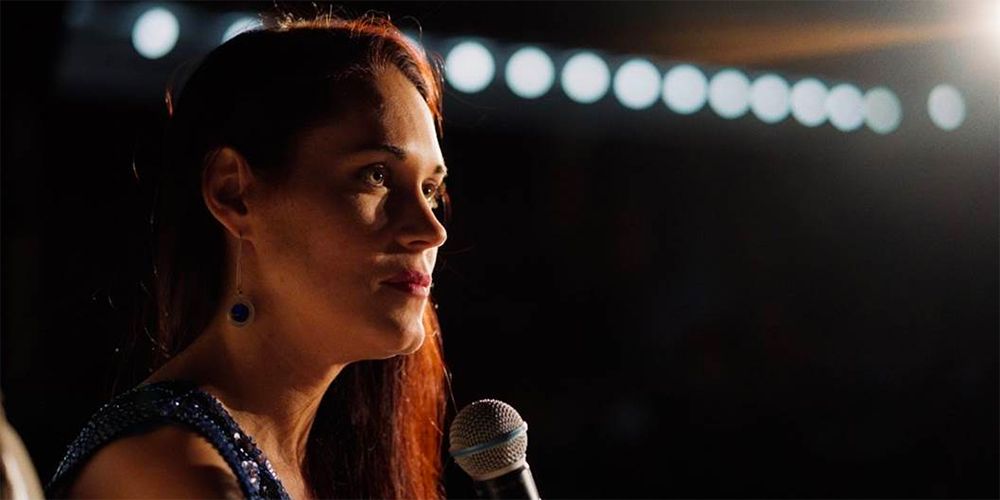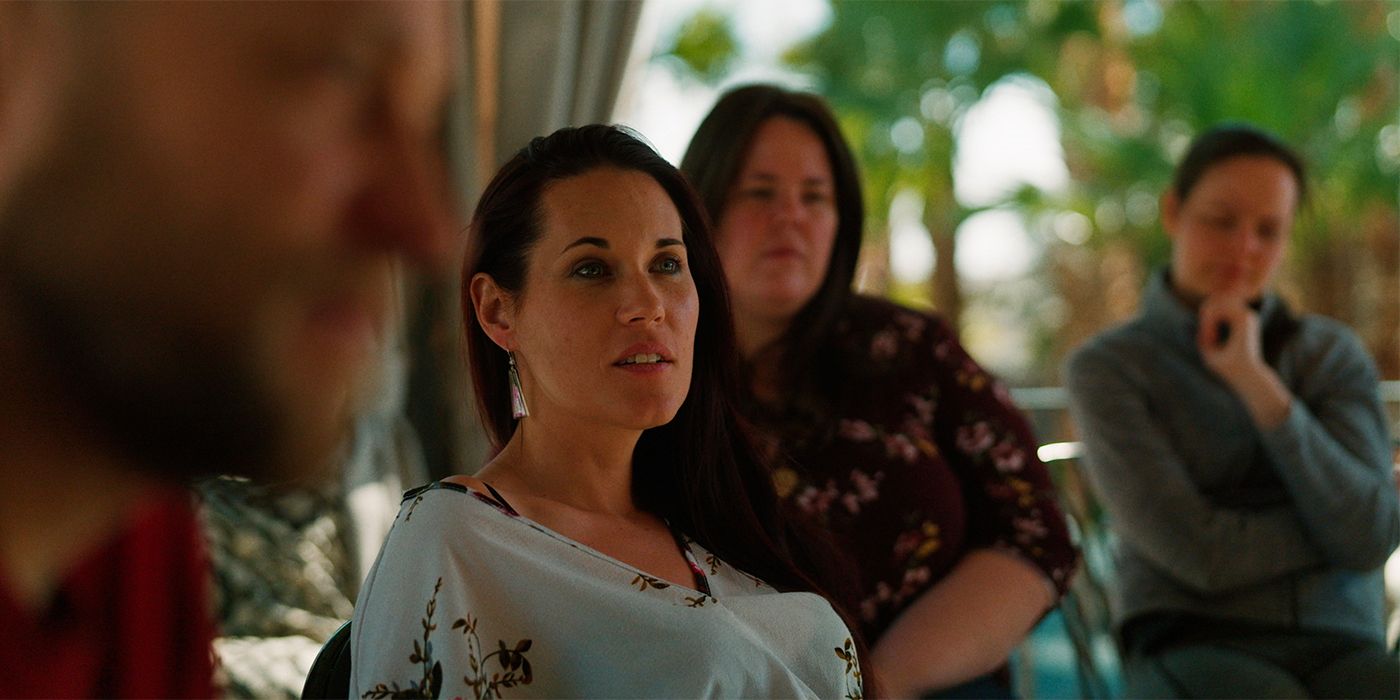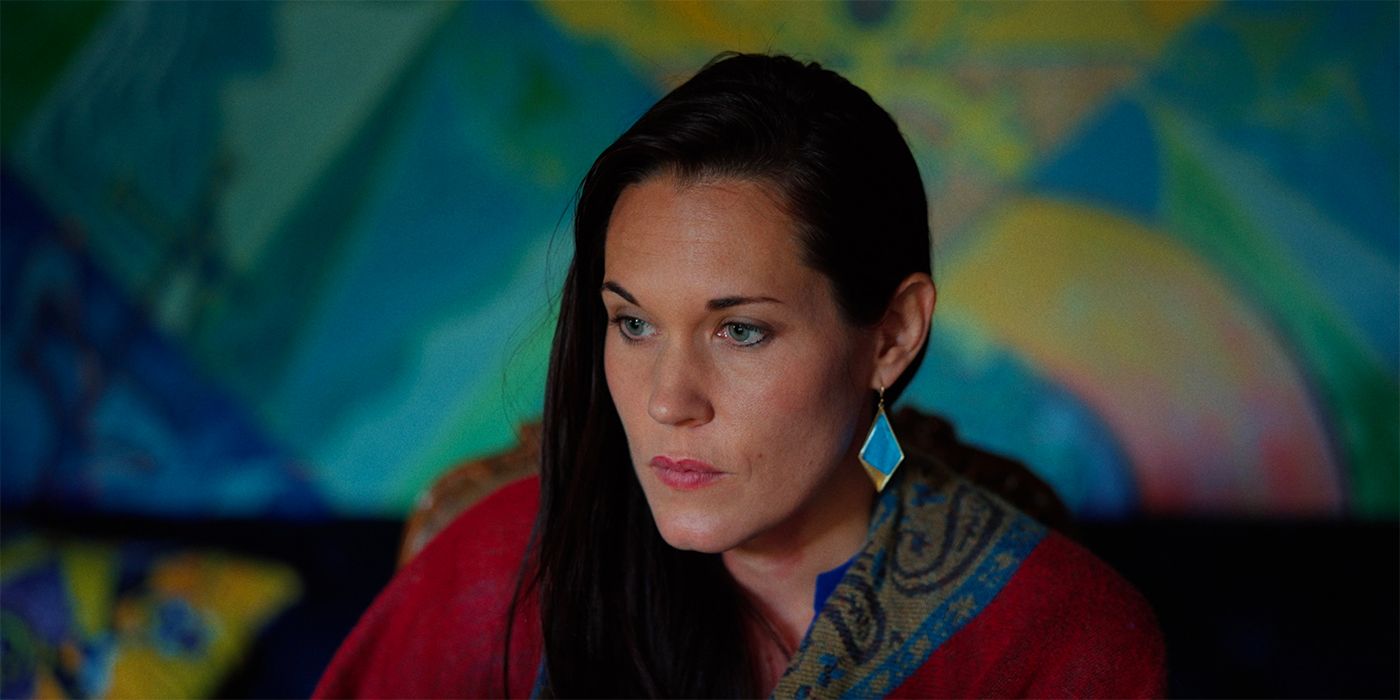The Big Picture
- Teal Swan’s controversial teachings and her community’s behavior raise red flags for cult behavior, posing potential danger to vulnerable people worldwide.
- Swan’s lack of professional credentials and her emphasis on potentially harmful techniques like repressed memory therapy make her teachings questionable.
- The documentary, The Deep End, portrays Swan and her community in a sensationalized and edited manner, compromising its trustworthiness as a source of information.
When we think about cults, we usually think back on the well-known historical cult leaders and activities with the benefit of hindsight. Last year’s Hulu limited series, The Deep End, changed the perception of cults by documenting a modern-day cultish community that stemmed from the teachings of Teal Swan.
Swan’s teachings, her followers, and the events of the time period during which the documentary was filmed are tricky areas to analyze, considering the fact that finding the truth requires plenty of sifting through stilted perceptions given by the makers of the documentary (who, admittedly, only gained their footage through deceptive means).
However, Swan’s controversial teachings are clearly shown to be potentially dangerous; her community, especially the inner circle, raises many red flags for cult behavior — an alarming find, considering that Swan is still growing her fan base and is very much still influencing vulnerable people all over the world.
With 2 million followers on Facebook and one and a half million on YouTube, it’s safe to say that many, many people are listening closely to what she has to say — for better or for worse.
Teal Swan’s Controversial Teachings, As Shown in ‘The Deep End’
Swan has plenty of experience in suffering and abuse; her childhood was no easy life. Betrayal from those closest to her, from adults and authority figures in her life, gave her a unique relationship with mental health and spirituality from a young age. As someone who has gone through horrendous suffering, Swan knows what it’s like to constantly question whether or not life is worth living.
However, Swan has no professional credentials, education, or certification to practice her healing techniques. She places a heavy emphasis on embracing negative feelings and revisiting trauma, saying that recalling all repressed memories is the only way to grow past the pain. Repressed memory therapy, also known as recovered memory therapy, can be a tricky technique to navigate, considering the fine line between repressed memory and false memory.
Because it is difficult to distinguish between memories that are real and have actually been recovered and false memories that “resurface” from the power of suggestion, psychologists are hesitant to say that repressed memory therapy is a safe practice. There aren’t too many ways to research the practice either, without venturing into the realm of the unethical.
The Deep End clearly shows Swan encouraging group exercises with her followers, during which other group members take on the personality of the patient’s friends or family and act out scenarios. Because none of these group members involved in the exercise have ever met the patient’s friends or family, the question arises whether this is actually helping the patient rather than making them question their reality.
Many of the resurfaced memories in The Deep End are, of course, tied to trauma (hence the repression), but the recovered memories shown in the documentary are all harsh on the family members of the patients. For one group member, Sabrina, the result from her exercise told her that her parents don’t love her. As a result, she moved out and cut ties with her family.
This isn’t to say that all recovered memories featured in The Deep End are false ones; it’s dangerous to assume as much. But it’s even more dangerous to practice exercises that have just as good a chance of implanting false memories as it does recovering real ones, especially when the result of these exercises leaves patients cutting ties with family and friends and devoting themselves entirely to Swan’s brand of healing.
Isolating one’s followers is a key descriptor in the behavior of a potential cult leader. Though it’s difficult to determine how genuine Swan is when she says she wants to help people who are in pain, it’s an understandable assumption to make that this is what she truly believes; it’s just that not everyone has the same experience as her. It’s unrealistic to recall every trauma that the brain hides in order to protect itself, and it can be very dangerous for people who are already entertaining suicidal thoughts to cut off their own support system.
The Problematic Behavior of Teal Swan, As Seen in ‘The Deep End’s Most Frustrating Scene
Swan’s one-healing-experience-fits-all attitude, as shown in The Deep End, can be extremely harmful, not just for the people who follow her teachings but for herself as well. Swan comments that either you’re in or you’re not, especially when it comes to her inner circle. In order for her to trust you, and for you to prove your devotion to the cause, you need to be available 24/7, be ready to put Swan first above even your family, and prove you’re willing to follow all of these rules by signing the non-negotiables list—which gave PI Molly Monahan a difficult time, considering that, by her standards, many of the non-negotiables on the list were, in her words, “illegal.”
While these strict rules are not enforced on the common follower or group member, the inner circle must abide by every rule, and to disagree with Swan is to ensure your eventual rejection. Inner circle member Julianna felt the full brunt of Swan’s disappointment and anger during one meeting in which Swan accused her of being an adversary and harboring negative feelings toward Swan.
Julianna, who gave up a life in Germany with her family to marry long-time Swan follower Blake Dyer, started having slight disagreements with Swan’s direction according to The Deep End. Not long after she voices one or two of her disagreements, she is verbally attacked during a meeting when Swan encourages the rest of the inner circle members to take turns gaslighting Julianna and trying to tell her what she thinks of Swan. Julianna can only sit in silence, respectfully giving room for her peers to drag her name through the mud and convince her that she is an enemy of Teal Swan.
Arguably, this is the most frustrating scene in the entire documentary; no one can speak out against Swan because she inherently knows what’s best, whether through her psychic powers of mind and aura-reading or because she automatically knows best based on experience. Later in the episode, Julianna does leave the inner circle, but she takes her husband Blake with her. After 18 years of devotion and close friendship, Blake and Swan cut ties.
Many aspects of the inner circle’s strict guidelines point toward cultish behavior, as Monahan points out. The blatant gaslighting of Julianna, as well as the emphasis on always following Swan’s guidance no matter what, shine a light on Swan’s questionable practices, even when it relates to the people who are close enough to her that she would call them family.
‘The Deep End’ Isn’t Entirely Trustworthy Either
There is a high level of responsibility when it comes to documentary filmmaking. Documentaries claim to tell the truth, and they should do so in trustworthy ways. While Swan’s teachings have been under scrutiny for years before the series and in the years following it, The Deep End itself doesn’t tell the whole truth either.
It’s easy to play around with perceptions when telling a true story, and documentaries will always have an inherent bias, but The Deep End is not careful with its portrayals of the people it films. In fact, the miniseries takes the time and effort to edit the documentary’s scenes for maximum drama, often at the price of transparency.
One instance that comes to mind is when Blake and Julianna leave the cause and Blake’s precious pets, his fish, die during the move. As he buries the pets, the footage is intercut creepily with footage of Swan spinning circles in the pool. Whether this shot was meant to convey that, after 18 years, Blake’s devotion to Swan has finally “died,” or to imply that Swan killed the fish, it gives the highest dose of drama possible. The shots in the documentary imply that Swan is jealous of Julianna, which is questionable, considering that the romantic relationship between Swan and Blake ended 18 years prior.
The final shot in the series finale is also questionable at best. At a conference, Swan asks her audience for a show of hands: anyone who is in pain and doesn’t know how to escape it. When almost the entire room raises their hands, we see a close-up of Swan’s face as she smiles. The documentary ends with the implication that she still has plenty of vulnerable followers to lead, thriving off of their desperation and pain.
Swan’s rebuttal video revealed that plenty of this footage was taken out of context, spliced together over time, and even manipulated by the makers of the documentary by them asking Swan to perform certain shots, like the image of her on a run while the footage intersperses her own voice saying that you can’t run from your pain.
However, Swan also claims in this same rebuttal video that certain occurrences filmed in The Deep End just didn’t happen—which isn’t possible, considering that the footage does exist. She does say highly questionable things, she does teach a very questionable practice, and the manipulation of The Deep End’s documentary filmmakers doesn’t change that.
Unfortunately, the untrustworthy way in which The Deep End portrays Teal Swan and her “Teal Tribe” makes it easy for supporters of Swan to reject it as a hit piece. Those who already follow Swan and consider her knowledgeable will not be swayed by the sensationalized documentary; if anything, it might just solidify their loyalty to Swan. This documentary was primarily made for those who are interested in the drama of Swan’s potential cult, and perhaps serve as a warning for those who have not yet subscribed to her teachings.
The Deep End is well-edited, thoughtful, and effective in terms of showcasing the most dramatic moments of a spiritual leader’s life. However, as a documentary, it leaves a lot to be desired. For what it wanted to be, The Deep End might have made a better movie than a documentary.
‘The Deep End’ Shows Us Why It’s Important to Remain Vigilant Regarding Cults
The word “cult” is a strong one, and it carries extremely negative connotations. Immediately jumping to the conclusion that Teal Swan is a cult leader, without looking too closely at the community that she has built, would be irresponsible. Even the PI hired to determine whether Swan is running a modern-day cult comes back with an inconclusive result: maybe.
There are definitely plenty of red flags, and isolation is a huge part of being welcomed into her inner circle. The non-negotiables list pretty much ensures that Swan and the “Teal Tribe” community are the only support system that’s “safe.” Most of Swan’s followers are not part of the inner circle and thus do not have to adhere to her rules. But when it comes to the inner circle itself, it’s very possible that a cult could form from good intentions.
One thing that’s important to recognize about cults and harmful communities is that they don’t just exist in the past, and sometimes it isn’t easy to see them for what they are. Present-day communities that isolate and have the potential to do harm do exist, and they seek out people who are vulnerable. Whether this is due to good intentions or bad ones, modern-day communities and harmful cults find those who have nothing else to turn to—and this can be the worst possible thing to happen to someone who is desperate for their lives to change and is willing to listen to potentially malicious and manipulative teachings.
Denial of responsibility! TechCodex is an automatic aggregator of the all world’s media. In each content, the hyperlink to the primary source is specified. All trademarks belong to their rightful owners, and all materials to their authors. For any complaint, please reach us at – [email protected]. We will take necessary action within 24 hours.
Khushi Patel is a science fiction author who lives in Austin, Texas. She has published three novels, and her work has been praised for its originality and imagination. Khushi is a graduate of Rice University, and she has worked as a software engineer. She is a member of the Science Fiction Writers of America, and her books have been nominated for several awards.







